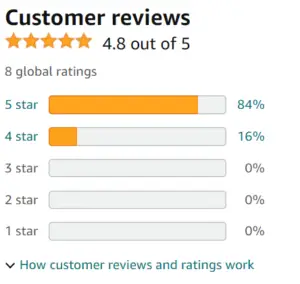When I started writing, I wasn’t really thinking about a novel. I wasn’t even thinking about short stories. I had no plan, only vague ideas about a fantastical world and a few interesting characters. I wrote random scenes with only loose, thematic connections. Whatever I woke up with each morning, I put down on paper (or bits). It was all me and my imagination. At some point, I begin to see an overarching story structure and the crazy idea of writing a novel began to take root. But that presented a problem.
I’ve noticed there are people in some of the online writing groups I’ve been in, who post everything they write, cheerfully welcoming any sort of feedback. They take in what they value and discard what they don’t. I’m not one of those people. There is a saying that goes something like “Teach a person to read, and they will read for life. Teach them to write, and they will suffer debilitating self-doubt for the rest of their life.” I’m in the second group.
I’ve heard others say they write only for themselves. They don’t care if anyone ever reads it. Sure! Though I suppose there is a certain therapeutic value in the process of organizing and expressing your thoughts, so I suppose it’s possible. But I’m not one of those people, either.
You can see my dilemma. At some point, I would have to let someone read something I wrote, but I was terrified at the prospect. Enter my wife, Deb. Deb knew I was writing, knew I was excited about it, but hadn’t read anything. “She loves me and wouldn’t stomp my bleeding heart,” I reasoned.
I forget what I gave her to read, but I think it was a scene I called ‘Minna Goes to Market’, which became the opening scene of Spirit Sight. I slaved over it, or thought I did. I spend more time on a single paragraph now than I did the entire scene then. At the time, it felt like those few pages took more effort than my dissertation. I printed them out, so nervous I dropped them and discovered too late I neglected to include page numbers. Once I had the pages organized, I found Deb, sitting in our small living room, looking as nervous as I felt. She disappeared upstairs, claiming she needed quiet to give it her full attention. I watched her go, thinking how hard it was to get her attention when she was absorbed in something. I pretended to watch TV, refusing to fidget.
We live in a house that is over 100 years old. Nearly every floorboard has had the time to develop its own personality. I heard when she finished. Listened to her walk down the hallway. Heard each creak as she descended the stairs. She appeared, the pages held in two hands in front of her, taking quick, measured steps. She sat carefully on the couch, rested the pages, just so, on her lap, looked me in the eyes, and she lied.
Not the egregious sort of lie you tell to deceive. No, this was the delicate lie you tell to spare the feelings of someone you care about. She wasn’t fooling anyone and we both knew it. And I loved her even more for it. She didn’t tell me it was wonderful, but she didn’t tell me it was awful, either. And in that small gap between not wonderful and not awful, I found inspiration. I decided that someday, I would write something that made her say, “Wow!”
So, I woke up the next day, determine to learn to write, and if you need to learn anything nowadays, Google is your friend. So, I strapped on my Google boots and waded into the swamp. Turns out, there is no dearth of writing advice out there. The trouble is more where to start, what to keep and what to discard. Today, I recognize most of it recycles the same five or six bits of advice. People have blogs to write and books to sell, after all. At the time, it was overwhelming and confusing. But I was motivated and a Google veteran. Eventually, I found things that really helped. I’ll talk about some of those in another post, but I want to mention one here. Somehow or other, I found a reference to Stephen King’s On Writing: A Memoir of the Craft (At this point, I want to apologize to a certain person. You know who you are). Stephen (natch) has an accessible writing style. The book is easy to ready, entertaining, and there are plenty of interesting nuggets for beginning writers. But it was in this one bit in which I found the inspiration I needed:
“…while it is impossible to make a competent writer out of a bad writer,…”
Uh, oh
“…and while it is equally impossible to make a great writer out of a good one,…”
Okay, maybe, “Wow!” is out of reach.
“…it is possible, with lots of hard work, dedication, and timely help, to make a good writer out of a merely competent one.”
Well, okay!
It says a lot about what I thought of my writing, that this was an inspiration, but it was. So, how long before I can expect to become a ‘good writer’. The real answer is who knows. You keep your head down, keep writing and keep trying to be better. However, it helps to have goals, and I found one in Jeff Wheeler’s book, Your First Million Words: Finding the Story Inside You. He attributed it to Terry Brooks, who attributed it to Stephen King, but isn’t sure where or when he said it.
“After you’ve written your first million words, then you are ready to start being a writer.”
A million words sounds like a lot, and this doesn’t mean you can simply put a million words on the page (or the screen). It means you have to struggle through the laborious process of writing, revising, opening yourself up to feedback, picking yourself up off the floor after, pushing yourself to expand your range, reading great writers with a purpose, etc. In short, it means “lots of hard work, dedication, and timely help.” Spirit Sight is roughly 241,000 words, and the novel Deb and I are writing will be around 100K words. I figure I’m on my way, and already I rate an honest, “That’s good,” from Deb. One day, she’ll say, “Wow!” and she’ll mean it.



